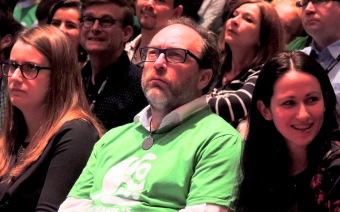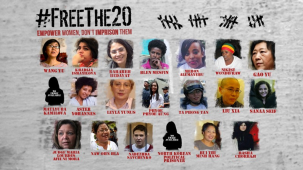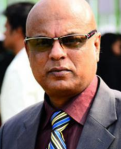The following is a list of individuals known to have been put in danger by their internet activities.
UPDATES (added from the top) (to display cases before 2017, click on title):
Tunisian bloggers. According to Human Rights Watch, Tunisian courts have handed jail terms to six people (or possibly nine bloggers since 2017) over statements on social media. 1) Emna Chargui, 2) Wajdi Mahouechi, 3) Yassine Ayari (FB, 2018)[source], 4) Salim Jebali (Facebook, May 2021) [source, 2], 5) Slim Amamou (2011) (Wikipedia) 6) …
Wajdi Mahouechi, Tunisia. Sentenced to two years in prison Nov. 2020 after criticizing the judiciary in a blog post. Nov. 2020 [1] [2]
Emna Chargui, Tunisia. Sentenced to six months in prison in July 2020 after she shared a post about COVID in the format of Koranic verse on Facebook. BBC News. Amnesty. France24.
Diananta Putra Sumedi, Indonesian blogger arrested after interviewing indigenous Dayak leaders on his blog, Banjar Hits, about a land dispute with an oil palm plantation, PT Jhonlin Agro Raya, a palm oil company and subsidiary of the Tanah Bumbu-based Jhonlin Group. The group is owned by Andi Syamsuddin Arsyad, also known as Haji Isam and “crazy rich” (profile) and is a former politician and race car driver. Haji Isam also came into the news in 2018, with the death of Indonesian journalist Muhammad Yusuf, who died in custody under mysterious circumstances after reporting on a land conflict for the news portals Kemajuan Rakyat and Berantas News. [Mongabay, Global Trade, International Federation of Journalists], investiation promised] The arrest was made under the controversial Electronic Information and Transactions (ITE) Law; Yusef was also charged under this law. Phil Jacobson, award winning American journalist, was also detained in Indonesia after attending a meeting on land conflict. (LATimes, Time, NYT, Chicago Sun Times), Mother Jones -some bio). Added 5/19/2020.
 Mohsen Lorestani (Persian محسن لرستان ), singer from a western Kurdish province of Iran, arrested at (in Persian) his mother’s house in Saadatabad, Tehran, on March 21, 2009, after a private chat in an undisclosed social media that was interpreted as flirting with a man. His case was assigned to Mohammad Moquisseh/Moqiseh (Persian محمد مکیشه ) commonly known as a “hanging judge”.
Mohsen Lorestani (Persian محسن لرستان ), singer from a western Kurdish province of Iran, arrested at (in Persian) his mother’s house in Saadatabad, Tehran, on March 21, 2009, after a private chat in an undisclosed social media that was interpreted as flirting with a man. His case was assigned to Mohammad Moquisseh/Moqiseh (Persian محمد مکیشه ) commonly known as a “hanging judge”. or perhaps Mohammad Moghimi (محمد مقیمی ), [No this is Mojgan Keshavarz’s attorney]… Mohammad Moquisseh was the judge who sentenced Monireh Arabshahi, Yasamin Ariany, and Mojgan Keshavarz to a total of 55 years in prison for “disrespecting compulsory hijab”; also sentenced women’s rights lawyer Nasrin Sotoudeh (Farsi نسرین ستوده) to nearly forty years] The charge was ‘corruption on earth’ . “However, an Iranian website close to the authorities claimed that Mohsen Lorestani has been arrested for membership in a network of so-called ‘Instagram dancers.’” There have been uncomfirmed rumors of the singers death, denied by his athlete brother, Morteza Qasemi (مرتضی قاسمی )/Mohsen Ghasemi ( محسن قاسمی ), who says he is in a coma. #mohsenlorestani (Added 2/10/2020)
مرگ فرنگیکار قهرمان آسیا شایعه است/ موطلایی کشتی ایران در کما
ایسنا/لرستان برادر محسن قاسمی مرگ قهرمان اسبق کشتی فرنگی آسیا را تکذیب کرد.
مرتضی قاسمی در گفتوگو با ایسنا اظهار کرد: محسن برای ترک اعتیاد به کمپ رفت و چون بیقراری و درخواست قرص کرده بود حدود ۸ نفر او را به شدت کتک زدند.
وی ادامه داد: دستها، پاها، صورت، فک و سر محسن را شکستهاند و الان در کما بوده و هوشیاری او تقریبا صفر است.
قاسمی یادآور شد: محسن در بخش icu بیمارستان آیتالله بروجردی بستری است.
وی گفت: خیلی از بزرگان کشتی ایران از جمله محمد بنا، حمید سوریان، طالب نعمتپور و… به بروجرد آمدهاند که جا دارد از تکتک آنان تشکر کنم.
قاسمی بیان کرد: از مردم خواهش میکنیم محسن را دعا کنند که شرایط جسمانیاش بهتر شود و شفا پیدا کند.
به گزارش ایسنا، محسن قاسمی سابقه قهرمانی آسیا در وزن کیلوگرم و همچنین قهرمانی جام جهانی به همراه تیم ملی را در کارنامه دارد.
انتهای پیام
“Iranian law appears to allow the execution of allegedly gay men despite no evidence of actual sexual activity….According to a Britsih diplomatic cable released by WikiLeaks in 2008, Iran executed up to 6,000 gays and lesbians since 1979’s Islamic Revolution.”
Chechen blogger Imran Aliyev, who criticized Kremlin-backed Chechnyna leader Ramzan Kadyrov, was found stabbed to death in France. Added 2/4/2020.
Chiara Páez (es.wiki)* 14-y-o Argentinian teenager found dead, sparked June 3, 2015 demonstration and “ni una menos,” or “not one less” protest. https://www.huffpost.com/entry/chiara-paez-femicide-argentina_n_7513194
 Malak “Angel” al-Shehri (ملاك الشهري), Saudi with 46K Twitter followers at Malak AlShehri@AngelQShe_, arrested after posting a photo of herself without head covering, now out of prison and living in the west; her husband Ayman al-Drees (أيمن الدريس), an insurance underwriter, and translator of documents related to human rights, was forcibly disappeared inside Saudi. Confirmed on Twitter by the UK-based NGO ALQST that monitors human rights in KSA. (Added 1/29/2020.)
Malak “Angel” al-Shehri (ملاك الشهري), Saudi with 46K Twitter followers at Malak AlShehri@AngelQShe_, arrested after posting a photo of herself without head covering, now out of prison and living in the west; her husband Ayman al-Drees (أيمن الدريس), an insurance underwriter, and translator of documents related to human rights, was forcibly disappeared inside Saudi. Confirmed on Twitter by the UK-based NGO ALQST that monitors human rights in KSA. (Added 1/29/2020.)
 Iranian scholars: Hunger strike by Dr. Kylie Moore-Gilbert, a British Australian expert on Shia Islam and Dr. Fariba Adelkhah (فریبا عادلخواه), a French Iranian anthropologist, arrested during research visits to Iran and accused of espionage. Niloufar Bayani,* (نیلوفر بیانی) wildlife conservationist and program manager of the Persian Wildlife Heritage Foundation, arrested while doing research on cheetahs. See “Arrest of environmental activists in Iran“* in Farsi. Narges Mohammadi, vice president of the Defenders of Human Rights Center, prison hunger strike. Nasrin Sotoudeh, lawyer defending Nobel Peace Prize winner Shirin Ebadi, in Evin prison.
Iranian scholars: Hunger strike by Dr. Kylie Moore-Gilbert, a British Australian expert on Shia Islam and Dr. Fariba Adelkhah (فریبا عادلخواه), a French Iranian anthropologist, arrested during research visits to Iran and accused of espionage. Niloufar Bayani,* (نیلوفر بیانی) wildlife conservationist and program manager of the Persian Wildlife Heritage Foundation, arrested while doing research on cheetahs. See “Arrest of environmental activists in Iran“* in Farsi. Narges Mohammadi, vice president of the Defenders of Human Rights Center, prison hunger strike. Nasrin Sotoudeh, lawyer defending Nobel Peace Prize winner Shirin Ebadi, in Evin prison.
Nouf Abdulaziz * (نوف عبد العزيز), (Arabic Wikipedia) also known as Nouf Abdulaziz al-Jeraiwi Aldosari, Nouf Abdulaziz al-Jeraiwi, journalist and blogger (Twitter), arrested June 6, 2018 along with “activist and social media commentator Loujain Al-Hathloul; and blogger, columnist, and activist Eman Al-Nafjan” associated with the driving ban on women. 2019 PEN America/Barbey Freedom to Write Award. detained without charge at Dhahban Central Prison, moved to Al-Ha’ir Prison in Riyadh, solitary confinement, tortured, denied lawyer and access to family members. Severely beaten until she fainted, (#فاطمة_آل_نصيف تعرضت لصفعات عنيفة تركت كدمات على وجهها.) Website: The Arab Noon. Awarded PEN with Loujain Al-Hathloul and Eman Al-Nafjan. *حالات تعتبر دليلا على تورط السلطات بانتهاكات ضد حقوق الإنسان. (Fatima_al_Naseef suffered violent slaps that left bruises on her face.) Also imprisoned and tortured: Aida al-Ghamdi (mother of Saudi dissident Abdullah al-Ghamdi living in London) and her son Adel al-Ghamdi, Abeer Alnamankany (dentist), Samar Badawi, Shadan al-Onezi, Aziza al-Yousef, Eman al-Nafjan, Loujain al-Hathloul, Nouf Abdulaziz al-Jeraiwi, Abdulaziz al-Meshaal (a philanthropist), Mohamed al-Bajadi and Yasser al-Ayyaf (Guardian). See also Hatoon Al-Fassi (reuters), Nassima al-Saada, Mayaa al-Zahrani (aljazeera), Amal al-Harbi (Washington post), and Mohammed al-Rabia (link). (Added 11/3/2019)
Ali al-Omari, * (علي العمري) (Arabic wikipedia) a moderate Sunni cleric from Saudi Arabia who has advocated against religious extremism and for more rights for women, mostly active on Snapchat. Faces death penalty. Also reported by Prisoners of Conscience @m3takl_en Detained September 2017. 30 charges including the death penalty brought against him in a secret trial January 2019. (Added 10/22/2019); “Leading Saudi Arabian scholars” Salman al-Awdah, Awad al-Qarni and Ali al-Omari sentenced to death (al-jazeera) “Adwah, Qarni, and Omari have been tied to the Muslim Brotherhood-inspired Sahwa movement,” according to author Kristian Coates Ulrichsen and analyst Giorgio Cafiero.
Abdulaziz al-Odah, son of imprisoned cleric Salman al-Odah, was arrested after tweeting support for the Palestinian cause. (Added 10/22/2019)
Salman al-Odah, Salman al-Awdah, (سلمان العودة ) Saudi religious scholar, imprisoned and now faces the death penalty after posting on Twitter to encourage the government to end its diplomatic impasse with Qatar. Clerics were ordered to tweet in favor of the Saudi government blockade of Qatar, but instead al-Odah tweeted “May God harmonize between their hearts for the good of their people.” (added 10/22/2019). Has 14 million followers on Twitter. Salman al-Awdah, Awad al-Qarni and Ali al-Omari sentenced to death (al-jazeera) “Adwah, Qarni, and Omari have been tied to the Muslim Brotherhood-inspired Sahwa movement.” according to author Kristian Coates Ulrichsen and analyst Giorgio Cafiero.
Nabeel Rajab, (نبيل أحمد رجب ), Bahrain. 5-year prison term for “spreading fake news” after criticizing Yemen war. H/T Jimmy Wales Foundation.
•Vahid Sayadi Nasiri died in an Iranian prison after being incarcerated since 2015. The charges were “insulting the supreme leader” Ayatollah Ali Khamenei and spreading “propaganda against the state” on Facebook. His family had requested he be moved from Raja’i Shahr to the notorious Evin prison.
•Kuwait again. This may more properly belong on an article about human rights in Kuwait, however Russian-born hedge fund manager Marsha Lazareva (no article) recently released after spending 470 days in Kuwait’s overcrowded Sulaibiya prison on forged documents. Huge amounts of money changed hands.
• Abdallah Saleh, Kuwaiti blogger, charged by the Saudi ambassador in Kuwait for criticizing Saudi blockade of Doha, fled to London, sentenced to 25 years in abstentia “insulting Saudi Arabia, the Emirates and Bahrain”.
Abdallah Saleh, Kuwaiti blogger, charged by the Saudi ambassador in Kuwait for criticizing Saudi blockade of Doha, fled to London, sentenced to 25 years in abstentia “insulting Saudi Arabia, the Emirates and Bahrain”.
•Mohamed Ould Cheikh Ould Mkhaitir, Mauritanian blogger. Arrested in 2014 and sentenced to death for “blasphemy” and “apostasy” after speaking out against slavery and Mauritania’s caste system. In March 2017, I started articles about him on Simple, Spanish, and Arabic wikis. Two weeks later there were articles started on the English, French, and Portuguese wikis, and the person who started those articles then circled back and added a photo to my article. In November 2017 the charges against him were dropped but he remained in prison. In July 2019, American Vice President Mike Pence spoke out against his detention. In August 2019, he was released and moved outside the country. Think about this cycle of events. What would have happened if there was no Wikipedia page? Looking down this page to 2016, I have a H/T to the Jimmy Wales Foundation, so thank you Jimmy and Orit.
•Nguyen Ngoc Anh, Vietnamese blogger, (disambig, the shrimp farmer, not the swimmer or footballer) environmental protests against Formosa Plastics Group toxic waste dump into the sea, sentenced to six years in prison under the country’s new law that cracks down on online dissent. (added 10/16/2019)
•Truong Duy Nhat, * (Trương Duy Nhất) (vi.wiki) Vietnamese blogger, suspected abduction from Bangkok in 2019. Applied for refugee status at the UNHCR’s office in Bangkok on January 25, 2019, disappeared Jan 26, reappeared in Hanoi prison Jan 28, held without charges, daughter says he was kidnapped in Thailand, wife not allowed to visit. (CPJ)(BBC -Vietnamese)(WSJ) police raid his attorney’s office (RFA) (added 10/16/2019)
• China kidnappings in Hong Kong. Five individuals of the Causeway Bay Books disappearances: Gui Minhai, 桂敏海or 桂民海a Chinese-born Swedish bookseller, Lam Wingkei / Lam Wing-kee (林榮基 ) (stub), book store general manager Lui Bo/Paul Lee and business manager Cheung Jiping, disappeared in Hong Kong and believed to be kidnapped by China. “Lui Por, general manager of the Mighty Current publishing house” reappeared 2016. Fifth disappearance chief editor Lee Bo, disappeared 2915. Statement by human rights activist Albert Ho (Chinese: 何俊仁) (BBC).
• Germans arrested in Turkey. Deniz Yucel, Peter Steudtner, Dogan Akhanli, (CNN), taxi driver Ilhami A, (Reuters) “terrorist propaganda”, and 12 political arrests relating to social media of German citizens in Turkey.
• Jamal Khashoggi RIP (1958 – 2018) Killed and dismembered inside the Saudi embassy in Turkey while his fiance waited outside. His body was never found.
When it comes to security, activists in the Arab world are not only worried now about the dangers from their own governments that view them as threats, whether they live at home or abroad. They are also worried about the recklessness of outsiders who might unwittingly—or otherwise—expose them to unnecessary risks.
Many commentators, myself included, have pointed out that it was completely inappropriate for comments that were given by Khashoggi off the record to be revealed in print after he disappeared in Istanbul. Thomas Friedman did so in his New York Times column, and the BBC did much the same.
I’ve heard of seminars in autocratic states where the speaker has made it clear they need it to be a closed event—and organizers overrule them. I’ve heard of private workshops where participants are clear that they cannot have delegates from the embassies of certain countries—and they’re ignored. I’ve heard of interviewees in dictatorships who were clear that their comments were off the record—but the interviewer identified them anyway. Anyone who has ever felt the grip of an authoritarian system, be it Saudi, Turkish, Russian, or Chinese, understands the need for these precautions. But often, outsiders arrogantly believe they know better….
Here is the reality for those who do work on authoritarian states, particularly those who are from those states or live in those states: They take it for granted that their phones might be tapped, that their online data might be hacked, that they might be arrested while working in those states or upon arrival in airports or deported for their opinions. They also know that far worse may take place. (Slate)
• Germans in Turkey. Dozens of German citizens imprisoned in Turkey for online criticism of Turkish President Tayyip Erdogan’s government. New travel warning update issued by the German government on 10-23-2018: “Arrests and prosecutions frequently related to social media posts that were critical of the government. In some cases merely ‘liking’ another’s post of that nature is enough.”
• Eman Al Nafjan, Saudi teacher and linguistics student. Blogs as “Saudiwoman”. In 2011 she drove a car in Riyadh as part of women’s driving campaign. Secretly arrested along with driving advocate Loujain al-Hathloul and at least three others. Tweets on a daily basis, last tweet was May 15. (Added 5/18/2018)
• Maryam Mombeini ( مریم ممبینی), wife of Iranian-Canadian professor Kavous Seyed-Emami, ( کاووس سیدامامی) (NYT) has been detained in Iran after the mysterious prison death of her husband in February. The arrest was not announced and the death was not confirmed by official sources. The professor’s two sons were allowed to leave the country March 7, 2018 but at the last minute Maryam was detained at the airport. (Added 3/8/2018) Maryam Mombeini was released after 582 days in Iran, reunited with her family and dogs at Vancouver airport on Oct. 10, 2019. Her husband was Kavous Seyed-Emami, an acclaimed environmentalist who co-founded the Persian Wildlife Heritage Foundation. The group was trying to save the endangered Asiatic cheetas in Iran. ***Eight conservationists from the Persian Wildlife Heritage Foundation remain imprisoned: Taher Ghadirian, Niloufar Bayani, Amirhossein Khaleghi, Houman Jokar, Sam Rajabi, Sepideh Kashani, Morad Tahbaz, and Abdolreza Kouhpayeh. (Science) (national geographic) (Updated 11/06/2019)
• Sattar Beheshti (ستار بهشتی ) “was an Iranian blogger who died in early November 2012 several days after being arrested by the Iranian Cyber Police unit for criticizing the government of the Islamic Republic on Facebook…” (Added 3/8/2018)
• Wu Xiangyang, China, five and a half years in prison (Guardian, the Economist) for VPN service that allows people behind China’s Great Firewall to access websites like Google, Facebook, YouTube and Instagram. To all the people who have argued with me about the safety of VPN’s: I TOLD YOU SO. When I was in China, I was able to access Wikipedia, including the Tienanmen Square article, but not Facebook, although a Chinese person did approach me to friend them on FB. This was before Wikipedia was blocked in China. I also used Google Translate extensively for banking and accommodation. For anyone who is wondering whether it is safe to edit Wikipedia while logged out, let me just say that after I made an edit about a human rights violation, from inside a country bordering China, that I was immediately checkusered and blocked, without any sockpuppet investigation, by an admin from China, whose early edits to Wikipedia under a different user name were to a prestigious secondary school in China used by China’s ruling class, and who has apparently been a grad student in the US for the last 12 years. In spite of my inquiries to UTRS, this individual still has checkuser rights, and will not hesitate to destroy a clean block log, which will permanently blacklist you from any future relationship you might have with Wikipedia. (added 1/6/2018)
• Ahmed Mansoor, Emirati telecommunications engineer, in UAE prison for unspecified social media comments. (Aljazeera, BBC, ABC); 2015 Martin Ennals Award for Human Rights Defenders (Amnesty international) see Wikipedia UAE Five. Via EFF’s “A Grim Year for Imprisoned Technologists: 2017 In Review” which also names imprisoned open source software developer Dmitry Bogatov, (no Wikipedia article), of Moscow’s Finance and Law University who ran a volunteer Tor relay, Egyptian software developer Alaa abd el-Fattah, and Canadian-Iranian open source coder Saeed Malekpour, imprisoned when he visited Iran to see his dying father, now in prison for 10 years. (Added 12/28/2017.)
• Osama Al-Najjar, 25 year old from UAE, objected on Twitter to the arrest of his father as one of the UAE 94. He remains in prison in Abu Dhabi seven months after completing his sentence. The UAE 94 are Islamists with ties to Egypt’s Muslim Brotherhood which is banned in the UAE. Added 11/29/2017. Released from Al-Razeen prison in Abu-Dhabi August 2019.
• Naima Al-Matrood, ( نعيمة المطرود) Saudi internet activist, she was sentenced to six years on prison on 10 November 2017, “violating public order by creating two social networking accounts on Twitter and Facebook to demand the release of some detainees”, arrested in Dammam (eastern Shiite region) but tried in the Specialised Criminal Court (SCC) in Riyadh (central Sunni region). Identified by the Gulf Centre for Human Rights (GCHR) which objects to trying activists in courts like SCC that handle “terrorism” cases. GCHR has offices in Copenhagen and Beirut; it is a non-profit. Added 11/29/2017. In Feb 2019 it was reported that the 43-year-old al-Matrood had serious and untreated health problems in prison. (Updated 11/7/2019)
• Nguyen Ngoc Nhu Quynh (“Mother Mushroom”) from Vietnam, sentenced to 10 years in prison after posting to Facebook about a toxic waste spill. On Nov 27, 2017, another critic of the steel mill spill, Nguyen Van Hoa was given 10 years. Added 11/28/2017.
• 14 Saudi Shiites from the eastern provinces, using Facebook and their Blackberries to photograph and/or send photographs of demonstrations. Tortured to extract confessions and sentenced to death. Some or possibly all underage juveniles. Added 8/6/2017.
• Bassel Khartabil’s death confirmed. Added 8/4/2017
 I note in passing that Khartabil’s wife Noura Ghazi is a human rights attorney in her own right, and comes from a family with a history of defending civil rights. The article I wrote for her on simple.wiki back in March 2016 has gotten over 160 page views in the last 3 days, so people are turning to Wikipedia for information about her, but she still has no article of her own on
I note in passing that Khartabil’s wife Noura Ghazi is a human rights attorney in her own right, and comes from a family with a history of defending civil rights. The article I wrote for her on simple.wiki back in March 2016 has gotten over 160 page views in the last 3 days, so people are turning to Wikipedia for information about her, but she still has no article of her own on the English or Arabic Wikipedia. (A very nice article for her was added to English Wikipedia in May 2018, as well as French and Dutch, but there still is no article in Arabic.)
 Beyond that, while it is interesting to have a martyr to the open source cause, this does nothing to propel forward the work that Kartabil was doing, in particular with #NEWPALMRYA. I note that there is now a memorial fund for continuing this work, but no one seems to have stopped to think of the implications for any people working on such a project. Khartabil is not the first martyr to the enemies of the middle east’s non-Islamic cultural heritage. Palmyra’s 81-year-old director of antiquities, Khaled al-Asaad, died horribly and his body was publicly displayed for days. I know firsthand the WMF’s cavalier attitude to volunteer safety, as I myself have been doxed repeatedly by Wikimedians in a position of authority, who had absolutely no excuse for doing so, other than believing they could get away with it. It’s time to tighten up the privacy policies and enforcement before we find ourselves with more Bassels.
Beyond that, while it is interesting to have a martyr to the open source cause, this does nothing to propel forward the work that Kartabil was doing, in particular with #NEWPALMRYA. I note that there is now a memorial fund for continuing this work, but no one seems to have stopped to think of the implications for any people working on such a project. Khartabil is not the first martyr to the enemies of the middle east’s non-Islamic cultural heritage. Palmyra’s 81-year-old director of antiquities, Khaled al-Asaad, died horribly and his body was publicly displayed for days. I know firsthand the WMF’s cavalier attitude to volunteer safety, as I myself have been doxed repeatedly by Wikimedians in a position of authority, who had absolutely no excuse for doing so, other than believing they could get away with it. It’s time to tighten up the privacy policies and enforcement before we find ourselves with more Bassels.
Taimoor Raza, Pakistan, sentenced to death for blasphemy based on Facebook. Raza is Shia, Pakistan is predominately Sunni. VOA, Guardian, etc. Added 6/12/2017.
Ahmad Al Shamri, Saudi Arabia, (now on enwiki) death sentence about atheism on Twitter. WaPo, &c, &c Added 4/27/2017.
Sina Dehghan * (سینا دهقان), Iran, “interrogated”, arrested by Revolutionary guards when he was 19 years old and a soldier, transferred to Arak prison ( زندان اراک ), promised to be freed if he signed a confession; after he signed, he was sentenced to death. His family has been warned against talking publicly about the case, saying he will not be released, and they are complying. He is allowed to telephone and meet his family once a week, and they visit Tehran every week. Accused of using LINE instant messaging application to make critical comments about Koran and Islam. In 2015, LINE (WP article) announced that it added end-to-end encryption, however in 2016 was given an ultimatum by Iran ‘to cooperate in censorship or face blocking’. Via JWF. Added 4/13/2017.
Merzoug Touati, Algerian blogger, imprisoned after an interview with an Israeli official over Skype. From JWF, lots of other sources in French. Added 2/10/2017. Released March 2019.
Continued (for cases before 2017, click on title):

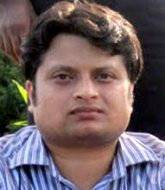
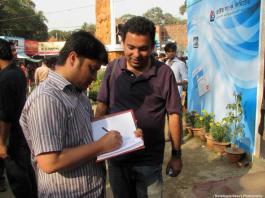






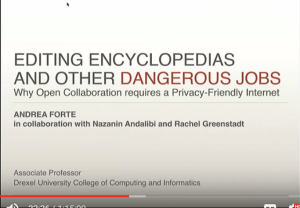

 Avijit Roy, The Virus of Faith, (বিশ্বাসের ভাইরাস) (2014, 2015) Download (ডাউনলোড) PDF (
Avijit Roy, The Virus of Faith, (বিশ্বাসের ভাইরাস) (2014, 2015) Download (ডাউনলোড) PDF ( Darwin: the relevance of the twenty-first century and thought, (ডারউইন: একুশ শতকে প্রাসঙ্গিকতা এবং ভাবনা) ed. Ananta Bijoy Das (2011) (see
Darwin: the relevance of the twenty-first century and thought, (ডারউইন: একুশ শতকে প্রাসঙ্গিকতা এবং ভাবনা) ed. Ananta Bijoy Das (2011) (see  Jukti (Yukti) magazine (যুক্তি): Essays on freethought, skepticism and rationalism. (অনন্ত বিজয় দাশ সম্পাদিত অত্যন্ত সাহসী একটি ম্যাগাজিন।) ed. Ananta Bijoy Dash
Jukti (Yukti) magazine (যুক্তি): Essays on freethought, skepticism and rationalism. (অনন্ত বিজয় দাশ সম্পাদিত অত্যন্ত সাহসী একটি ম্যাগাজিন।) ed. Ananta Bijoy Dash  Ayala, f. J., Am I a monkey? Six big questions about evolution,(আমি কি একটা বাঁদর?) (2010), tr. Ananta Das and Siddharth Vijay Dhar (2011) Download (ডাউনলোড) PDF (
Ayala, f. J., Am I a monkey? Six big questions about evolution,(আমি কি একটা বাঁদর?) (2010), tr. Ananta Das and Siddharth Vijay Dhar (2011) Download (ডাউনলোড) PDF (